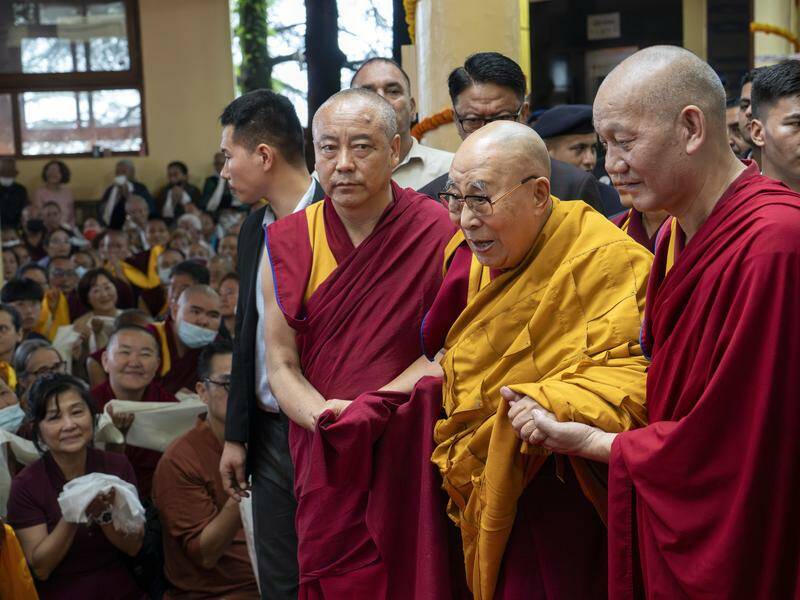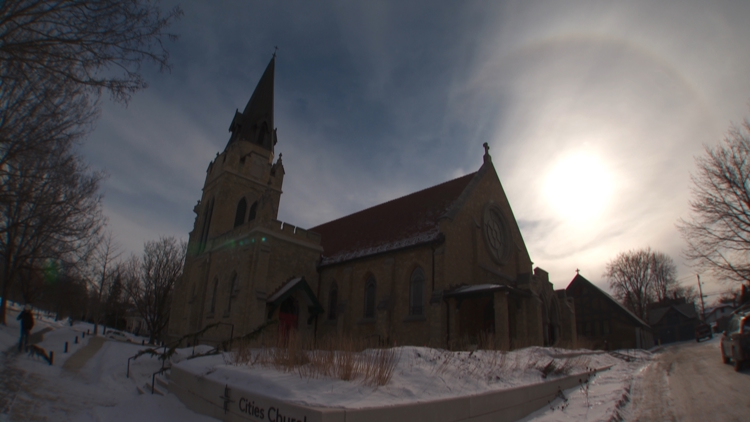
Thousands of Tibetan Buddhists have converged on the Indian Himalayan town of Dharamshala to celebrate the 90th birthday of the Dalai Lama. The revered spiritual leader, Tenzin Gyatso, has recently announced plans to reincarnate after his death, a statement that has sparked significant interest and speculation.
On Sunday, despite persistent rain, hundreds of red-robed monks and nuns navigated the narrow streets of Dharamshala, heading towards the main Dalai Lama temple. The spiritual leader was scheduled to deliver a speech to the gathered crowd, which included many Tibetans carrying ceremonial offerings. This annual event draws thousands of followers from around the world, including celebrities and officials from both the United States and India.
Reincarnation Announcement
Earlier this week, the Dalai Lama, a Nobel Peace Prize laureate, ended years of speculation by confirming his intention to reincarnate. He emphasized that the next Dalai Lama should be identified according to traditional Buddhist practices. This announcement has been seen as a significant move, considering the ongoing political tensions surrounding the succession.
On Saturday, the Dalai Lama expressed his hope to live until the age of 130. Historically, he has stated that his successor would be born in the “free world,” outside of China, a statement that has resonated deeply with the Tibetan diaspora.
Historical Context and Political Implications
The Dalai Lama’s life has been marked by significant historical events. Born in 1935, he was recognized as the 14th Dalai Lama in 1937. In the 1950s, following a failed uprising against Chinese rule, he fled Tibet and sought refuge in India, where he established a government in exile. Over the decades, he has become a symbol of the Tibetan struggle for autonomy.
China, which considers the Dalai Lama a separatist, has asserted its authority over the selection of his successor. Beijing has declared that it alone has the right to approve the next spiritual leader of Tibetan Buddhism, rejecting any candidate not sanctioned by the Chinese government. This stance has heightened tensions between China and the Tibetan exile community.
“China will reject anyone chosen without Beijing’s consent,” Chinese officials have stated repeatedly.
The Dalai Lama’s Global Influence
Despite living in exile, the Dalai Lama has maintained a significant global presence. Known for his red robes and infectious smile, he describes himself as a “simple Buddhist monk.” Yet, to millions of Tibetan Buddhists, he is a living manifestation of Chenrezig, the Buddhist deity of compassion.
His efforts have not only kept the Tibetan culture and identity alive but have also garnered international support for the Tibetan cause. The Dalai Lama’s advocacy for peace and compassion has made him one of the most recognizable figures worldwide.
Future Prospects and Challenges
The Dalai Lama’s recent statements about reincarnation have set the stage for future challenges and discussions regarding the leadership of Tibetan Buddhism. Many exiled Tibetans fear that China will attempt to install its own successor, a move that could further complicate the already tense relationship between Tibetans and the Chinese government.
As the Dalai Lama continues to age, the question of succession remains a critical issue. His commitment to traditional Buddhist practices in selecting his successor may serve as a counterbalance to Chinese influence, but the path forward is fraught with uncertainty.
For now, the celebrations in Dharamshala offer a moment of unity and reflection for the Tibetan community and their supporters worldwide. As they honor their spiritual leader, they also brace for the challenges that lie ahead.







